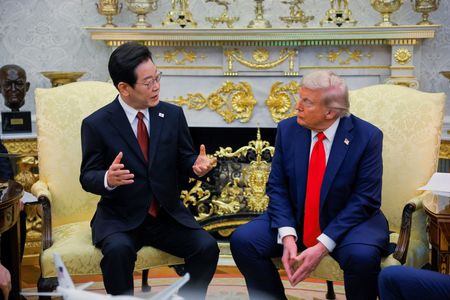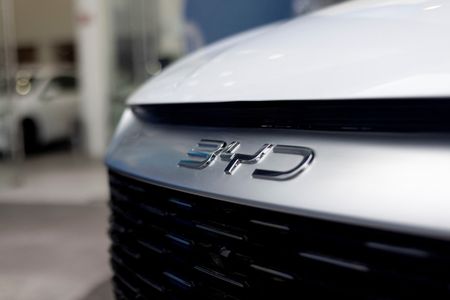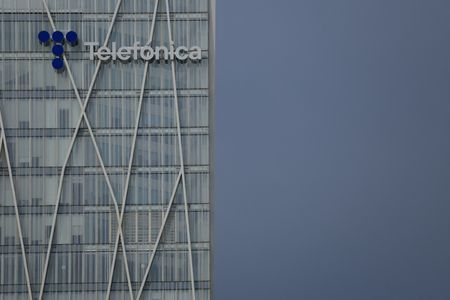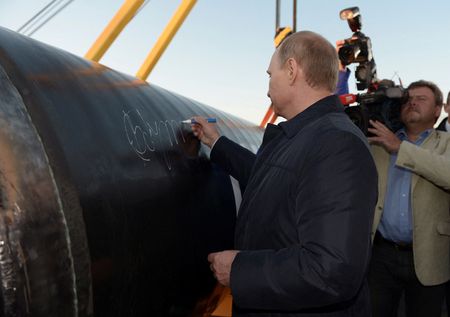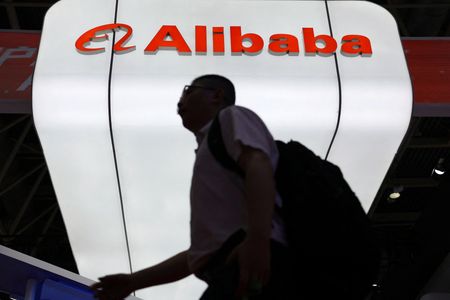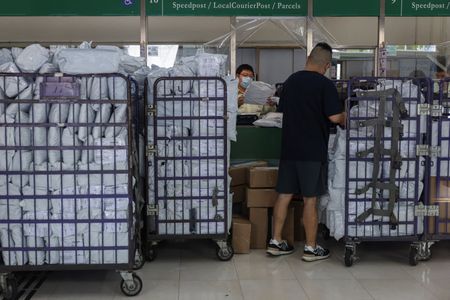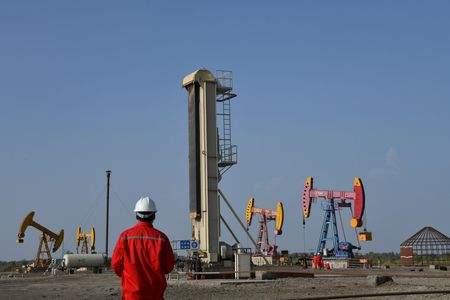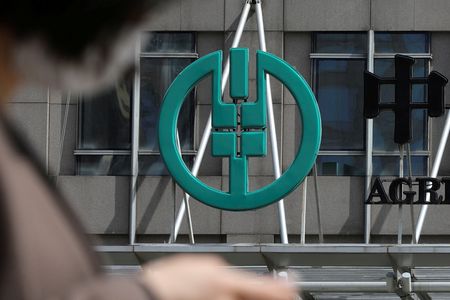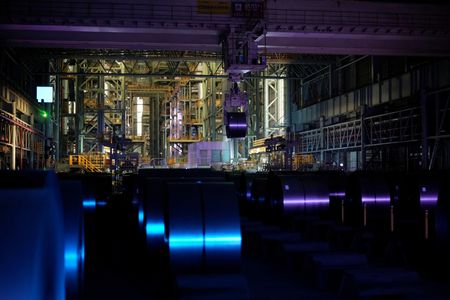By Hyunjoo Jin and Joyce Lee
SEOUL (Reuters) -Negotiations ranging from tariffs to defence between South Korea and the United States were bogged down, overshadowing a handshake agreement and a promising presidential summit, officials in Seoul said.
South Korean President Lee Jae Myung met U.S. President Donald Trump for the first time on Monday, and emerged declaring success after displaying personal chemistry and avoiding any public split between the two long-time allies.
Behind the scenes, however, the two sides were unable to agree on a joint statement or even a fact sheet, and a month after announcing a deal on tariffs, the agreement still has not been finalised on paper.
Lee’s national security adviser, Wi Sung-lac, said on Friday that the two countries did not produce documents covering security, economy, trade or investments because progress remained slow in some areas while large strides had been made in other areas.
More discussions and reviews were needed to hash out their details, he added, without providing specific details.
South Korean presidential chief of staff Kang Hoon-sik told reporters on Thursday that it was a “very difficult negotiation” because issues ranging from investments to security are closely intertwined.
“If the negotiations for one minister doesn’t go well, they put a break on another negotiation that is going well,” he said.
“We’ve overcome a significant obstacle, but there is still a long way to go.”
Kang added that Washington could leverage several issues such as tariffs on cars, chips, and pharmaceuticals, as well as defence costs and around U.S. forces stationed in Korea.
Speaking to his cabinet after the summit, Trump acknowledged a “problem with South Korea” but that Seoul had ultimately “kept the same deal.” Neither Seoul nor Washington has elaborated.
The U.S. Embassy in Seoul did not immediately respond to questions about the talks.
‘BIG LOSSES’
Even before Lee and Trump’s meeting, disagreements over a $350 billion investment fund, as well as a U.S. push to open up South Korea’s agriculture market, were hampering negotiations.
Meanwhile, cuts to tariffs on automobiles are yet to be finalised and Seoul has not secured assurances on chip levies, both expected to be capped at 15% – the same rate as Europe.
An auto industry official said the summit has done little to ease uncertainty: “We are really worried… We are having big losses.”
South Korean newspaper JoongAng Ilbo said the U.S. wanted to use the summit to produce documents detailing the $350 billion investments in return for accepting Seoul’s demand for formalising 15% tariffs on cars and chips, and ruling out the opening of rice and beef imports.
A South Korean official said Seoul has asked that loans and equity only account for a fraction of the fund.
After the summit, Seoul said it was in talks with the U.S. to work out a non-binding deal on the fund.
Japan, the only other country to propose such a large investment fund, is also facing delays in finalising its deal over unresolved issues with Washington.
It remains unclear what payments Trump will demand from South Korea for maintaining the 28,500 American troops based there. He has also raised a fresh demand for the U.S. to own the land on which its bases are located.
South Korean officials have said it is a political non-starter and there has been no such formal request from Washington.
(Reporting Hyunjoo Jin and Joyce Lee; Additional reporting by Cynthia Kim; Writing by Josh Smith; Editing by Saad Sayeed)

